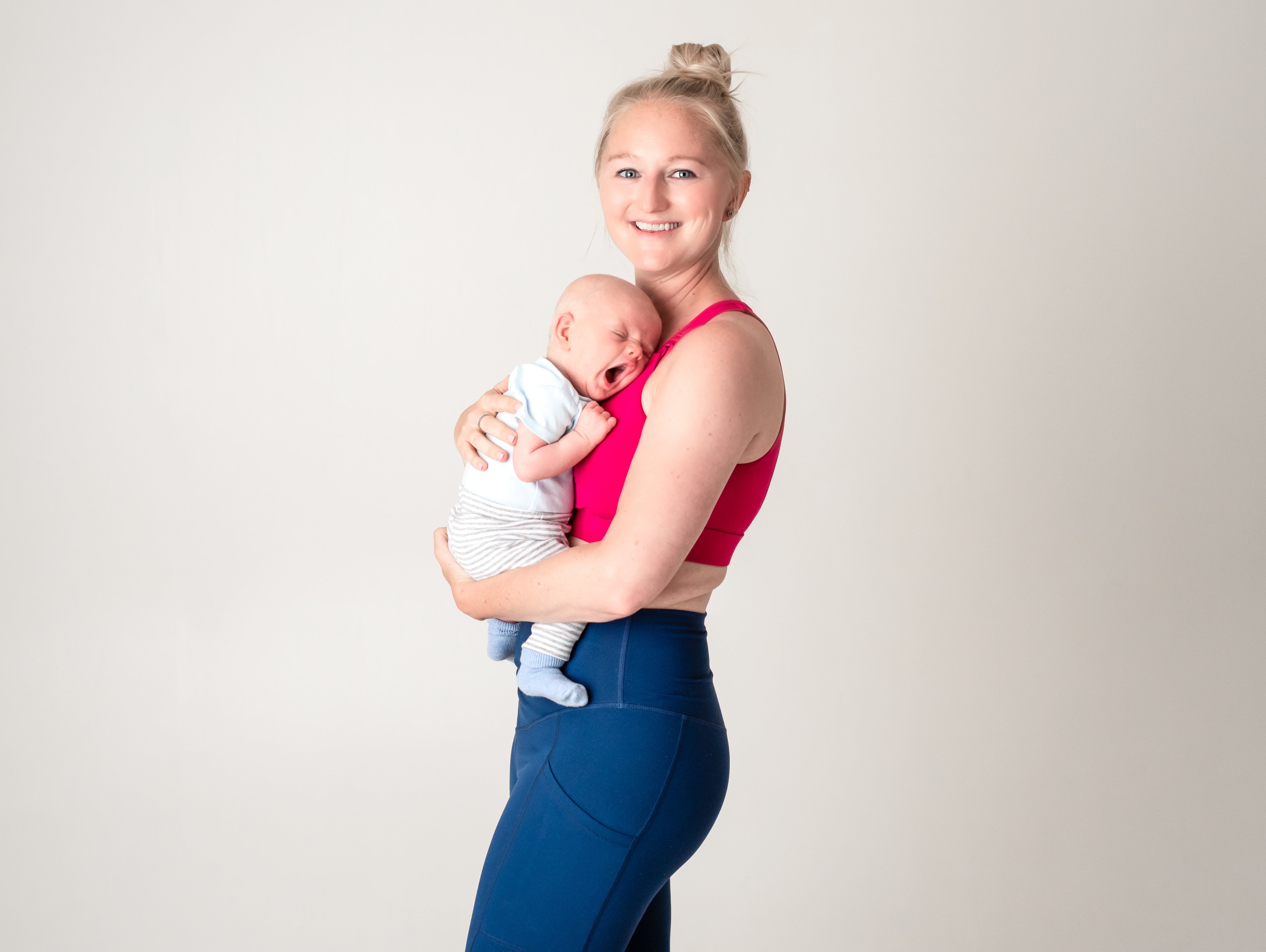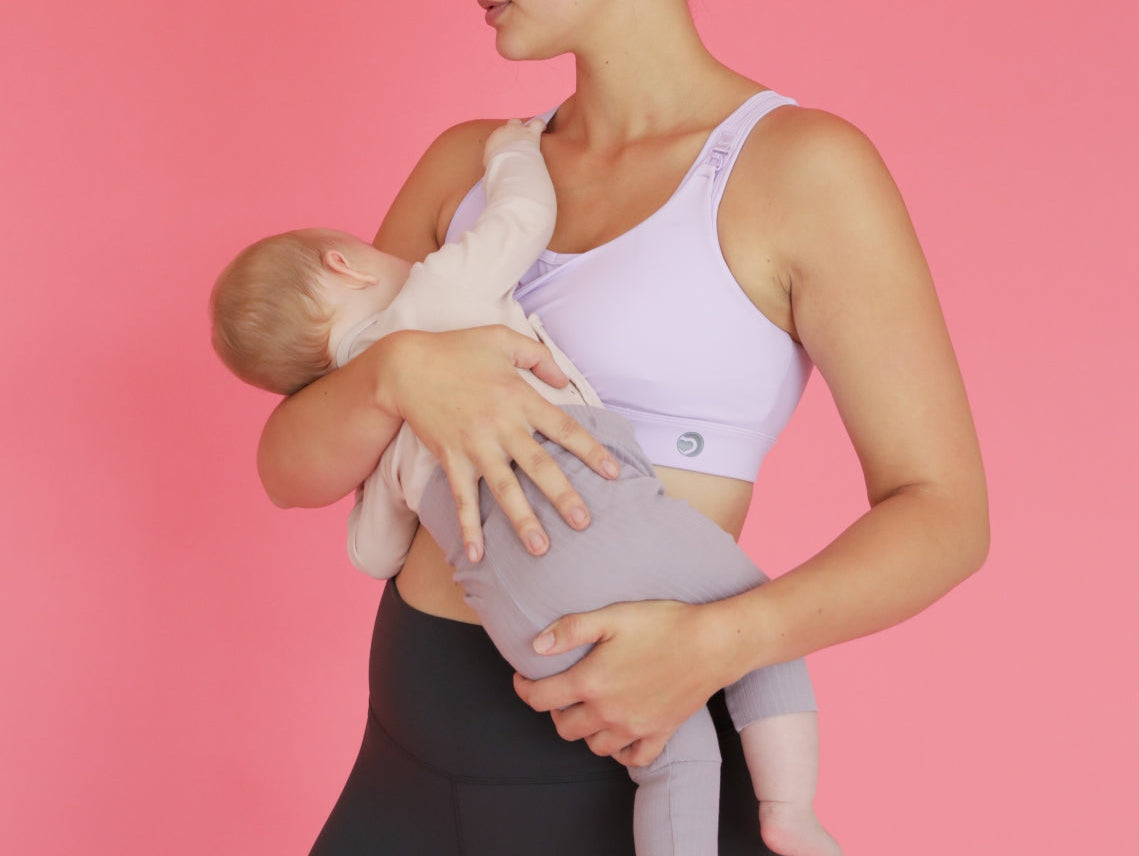Pregnancy can be both a time of extreme challenge for women suffering with eating disorders, and a trigger for an eating disorder that may not been present prior to falling pregnant. Here we talk to Dr Rachel Evans, an eating disorder recovery psychologist about the impact eating disorders in pregnancy can have and how you can manage and access support if you are suffering from one.
Pregnancy is a challenging time for many women, where they experience, often for the first time, rapid changes in their bodies as their babies grow. Dr Evans explains how this can lead to someone feeling out of control about their body, especially when accompanied by the many comments from well-meaning family and friends. “Seeing or feeling weight gain can be a trigger for someone with an eating disorder who, as part of the eating disorder, fears becoming ‘fat’. This situation could be worsened by comments from relatives, friends, colleagues and even strangers about someone’s changing body, ‘baby weight’ or bump size.”
The impact of a changing appetite
Changes in appetite may also be a challenge for someone struggling with an eating disorder in pregnancy. “Increased appetite and eating more could cause someone to feel guilty if they are used to restricting how much they eat, or could trigger an episode of binge eating,” explains Dr Evans.
“In contrast, for many people struggling with an eating disorder in pregnancy, decreased appetite and nausea can make it mentally and physically challenging to eat enough calories to sustain themselves and the growing baby. This is especially problematic for those struggling with or in recovery from anorexia, as malnourishment may be a trigger for increased eating disorder thoughts and behaviours.”
The challenge of bulimia
Using compensatory mechanisms such as self-induced vomiting, excessive laxatives or diuretics, extreme exercise, or fasting can be very dangerous for both mother and baby. “For some people, the knowledge that they are pregnant and their body is supporting a baby enables them to stop these behaviours almost overnight, whereas for others it is more difficult to stop, which could lead to feelings of conflict, guilt and poor mental health on top of the physical health complications,” explains Dr Evans.
However, one challenge expressed by clients of Dr Evans that have managed to stop eating disorder behaviours almost immediately when pregnant is that the thought of engaging in those behaviours and anxiety about body image does not automatically go away. “To the outside world, they may look like they have recovered and so may receive less support from family and friends, but they are still struggling daily and need support as much as before.”
The impact of healthy eating advice
Advice from health care practitioners and via maternity websites around healthy eating and controlled weight gain can be challenging for someone who has an eating disorder. “It can be interpreted as presenting new ‘rules’ and expectations around food and body size, explains Dr Evans. “Someone may feel pressure to eat ‘perfectly’ to help their growing baby, however, with appetite changes, nausea and cravings to contend with, it’s unlikely that someone would be able to follow the advice exactly. This could magnify a woman’s focus on their food choices and lead them to feeling guilty for eating the ‘wrong’ thing, which is in opposition to the goal of many eating disorder recovery treatments to increase flexibility around food.”
The hormonal impact
Eating disorders are a coping mechanism. Hormonal changes during pregnancy can lead someone to experience certain emotions more intensely than usual, for example, anxiety or feeling overwhelmed, and they might use eating disorder behaviours such as restricting food or binge eating to cope. “Learning new ways to handle difficult emotions and situations is key to improving mental health during and after pregnancy,” says Dr Evans.
So why would an eating disorder be triggered by pregnancy?
Given the cultural ideal of ‘thinness’ and filtered, stretch-mark free photos, it’s hardly surprising that many women struggle with the changes to their bodies when they are pregnant. But what pushes that to the next step of an actual eating disorder? Dr Evans believes it can be linked to anxiety and stress around the pregnancy. “Some people may feel pressure to eat ‘perfectly’, take all the right supplements, and exercise as recommended to give their growing baby the best start in life. In some cases, this may develop into orthorexia; an obsession with eating correctly; typically restricting food intake based on how ‘clean’ or healthy a food is judged to be.
“Often the sufferer will prioritise clean eating, exercise and healthy living over their former hobbies/ interests and can be quite unaware or even defensive about their changes in behaviour. These behaviours are typically accompanied by anxiety around certain foods and becoming more isolated at a time when someone may already be stressed and need more social support.”
Top self-care tips for pregnant women if they find themselves struggling with eating disorder urges
Breathing techniques
Breathing techniques are top of the list for in the moment distraction. “‘Box-breathing’ or taking intentionally deeper breaths in and out, can be useful to direct attention to the present moment and detach from eating disorder thoughts/urges. Taking deep breaths helps to de-activate the sympathetic nervous system (fight, flight, freeze) and activate the parasympathetic nervous system (rest and digest), which makes people feel instantly calmer.”
Pregnancy Yoga
Gentle pregnancy yoga classes can be a nice way to get in touch with your changing body and start to appreciate how it is supporting you, rather than focusing too heavily on what the changes look like.
Antenatal classes
Antenatal classes or meet-ups could help you to find other people who can relate to some of what you’re going through, make connections and grow a new but important support network.
Be kind to yourself
Remember that your body is working hard to grow a baby, you might be more tired or irritable than usual. Try to take off the pressure to do everything and have it done perfectly. Prioritise the things that you really need to get done, delegate what you can and cross the less important things off your to-do list.
Advice for those who have suffered with an eating disorder and worry about becoming pregnant.
“There’s never the perfect time to start a family, you might decide you want to begin trying for a baby now and deal with any triggers as they come up or you might decide to address some of the fears and feel more secure in your recovery before you start a family,” suggests Dr Evans.
“But identifyIng potential triggers is a really good thing, because if you are aware of them then you can make a plan of how to avoid them or handle them if they do arise. For example, if you’re worried how you will feel about gaining weight then you might want to have a very direct conversation with family members and ask them NOT to comment on how your body is changing for example.”
If you are suffering with an eating disorder in pregnancy, help is available at the following places:
- Support from perinatal mental health services is available via the NHS, which you can access via your GP or midwife. It’s also likely that someone with an active eating disorder or history of one would be recommended consultant lead care and receive extra appointments and monitoring.
- Visit the BEAT website for local support
- Private therapists and dieticians who specialise in eating disorder recovery and antenatal or postnatal mental health.
Also Read: RUNNING IN PREGNANCY - NINE THINGS TO AVOID
Dr Rachel Evans is an eating disorder recovery psychologist who has herself overcome an eating disorder and has recently had her first baby. You can find out more about her work here https://eatingdisordertherapist.co.uk/about



